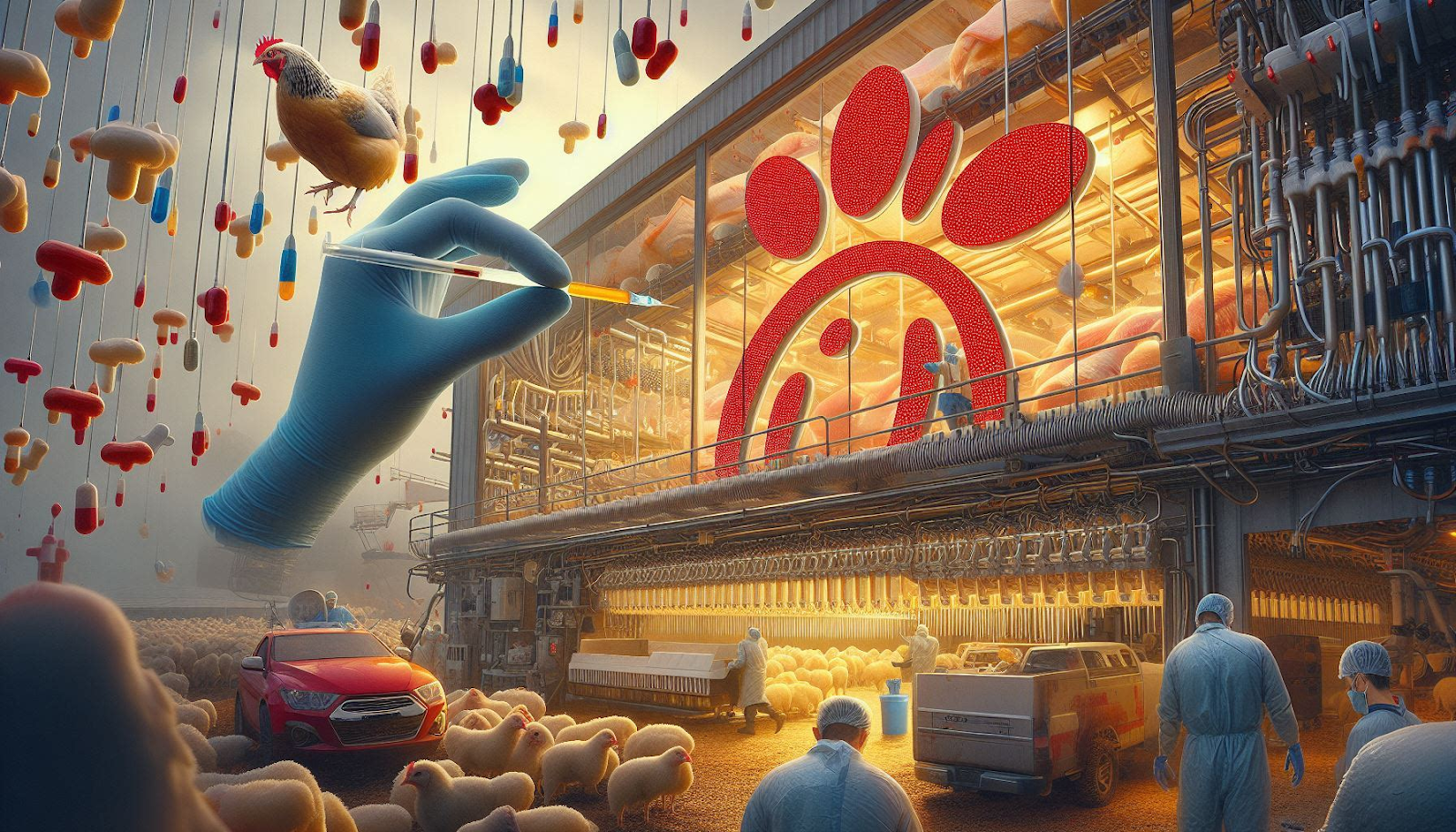Food
Chick-fil-A Reverses Gear, Will Allow Limited Antibiotic Use in Chicken Supply

In a surprise move that has drawn criticism from health advocates, Chick-fil-A announced it will begin allowing the use of some antibiotics in raising the chickens for its supply chain starting in spring 2024. The policy shift comes nearly a decade after the popular fast-food chain committed to serving only antibiotic-free poultry across its restaurants.
The Update on Chick-fil-A’s Website
On Thursday, Chick-fil-A updated a statement on its website with the following:
“To maintain supply of the high-quality chicken you expect from us, Chick-fil-A will shift from No Antibiotics Ever (NAE) to No Antibiotics Important To Human Medicine (NAIHM) starting in the Spring of 2024.”
The statement goes on to clarify that antibiotics will only be used “if the animal and those around it were to become sick.” However, it specifies that the antibiotics administered must be cleared from the chicken’s system before being sent to suppliers, per USDA auditing requirements.
A Reversal of 2014 Commitment
The move represents a major reversal from Chick-fil-A’s widely-publicized 2014 commitment to have all its chicken raised completely antibiotic-free within five years. By 2019, the chain proudly touted that it had achieved serving 100% antibiotic-free chicken across its nationwide footprint of over 2,600 locations.
At the time, the antibiotic-free initiative was hailed as an important step in combating the public health crisis of antibiotic resistance and set Chick-fil-A apart from other major fast food chains.
Reaction and Criticism
Health organizations blasted the decision as breaking an important corporate promise in the fight against antibiotic resistance, which leads to approximately 35,000 deaths annually in the United States. Overuse of antibiotics in food animals is a major contributing factor.
“Chick-fil-A is taking a chance step backward that undermines critical efforts to rein in indiscriminate antibiotic use in industrialized poultry production,” said Avinash Kar, senior attorney for the Natural Resources Defense Council’s health program. “It’s disappointing that the company is caving to industrial chicken producers unwilling to make legitimate changes to avert misuse of medically important antibiotics.”
Consumer advocacy group U.S. PIRG urged Chick-fil-A to reconsider its “major public health misstep.” In a statement, the organization’s agriculture policy expert said “Allowing routine use of medically important antibiotics in the chicken supply chain puts public health and food safety at risk by promoting antibiotic resistance.”
Concerns Over Chicken Supply
For its part, Chick-fil-A cited concerns over being able to maintain an adequate supply of high-quality, fresh chicken that meets its standards as the driving factor behind the policy change.
“As we looked to the future, the availability of high-quality chicken that meets our rigid standards became a concern,” a company statement explained. “This change enables us to not only ensure we can continue to serve high-quality chicken but also chicken that still meets the expectations our customers count on us to deliver.”
Chick-fil-A is the latest in a growing number of food companies backtracking on earlier commitments to restrict routine antibiotic use due to supply chain challenges. In 2023, Tyson Foods – the largest chicken producer in the U.S. – also retreated from its 2015 “no antibiotics ever” pledge.
The Impact on Consumer Trust
Whether Chick-fil-A’s about-face on antibiotics will damage its credibility and the consumer trust it has cultivated remains to be seen. Customer perception and public accountability have become increasingly important factors for national food brands.
For years, Chick-fil-A has promoted its chicken as being “Class A” and made transparency around ingredients and processing a key part of its fresh, high-quality marketing claims. The reintroduction of antibiotics could undermine those carefully crafted narratives in the minds of discerning consumers.
“If Chick-fil-A succumbs to backsliding on its antibiotics stance, they may end up dealing with blowback from consumers who took them at their word and expected a higher standard,” said Carl Jorgensen, director of global risk for Chemonic Food Safety Solutions. “Re-establishing trust could prove challenging in an environment of heightened food skepticism.”
The Road Ahead
As the planned policy shifts remain a few months away, health advocates are already mounting campaigns urging Chick-fil-A to reverse course and stick to its original antibiotic-free commitment from 2014. Whether consumer pressure or supply concerns ultimately prevail could have rippling impacts across the food industry.
In the meantime, clarity around labeling and transparency will be crucial for Chick-fil-A to maintain credibility as it reintroduces routine antibiotics – albeit supposedly limited to animal health uses. Proactive communication and stringent certification around its “No Antibiotics Important to Human Medicine” standards will be needed to assure a skeptical public.
The entire episode underscores the complicated balancing act major food brands face in trying to uphold ethical and health-conscious sourcing practices while ensuring sufficient supply to meet customer demands. As Chick-fil-A’s policy change demonstrates, that battle between principles and pragmatism is increasingly being waged on a molecular level.
